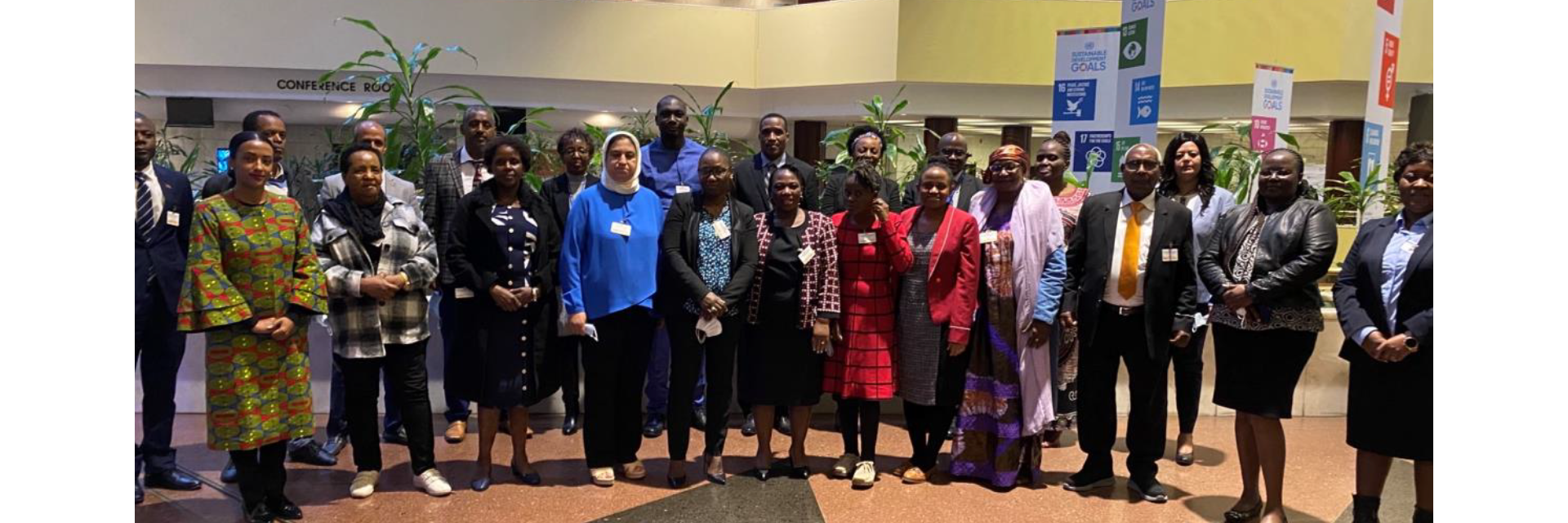Addis Ababa, 14 July 2022 – Experts gathered for the expert group meeting on the fourth Africa regional review and appraisal of the implementation of the Madrid International Plan of Action on Ageing (MIPAA) concluded their two-day discussions with a strong call for dignified ageing for all.
Experts, including representatives from the African Union Commission, HelpAge International, MIPAA country focal points, policymakers, development practitioners and older people, cautioned that the gains in economic growth could be lost in a few decades if Africa did not plan now for its growing older population.
Organised by the United Nations Economic Commission for Africa (ECA) on 12-13 July, the meeting saw experts review national and regional progress on implementing the Madrid International Plan of Action on Ageing, and share country experiences and good practices that could strengthen policies on ageing for the well-being of Africa’s older population.
About one-third of African countries have strategies to implement the targets set in MIPAA. Officials from these countries participated in the meeting to share their experiences. In particular, the Nigerian official stressed that “policy should be aligned with the legal framework” to adequately support older people. Their Malawian counterpart said international aid could boost the impact of the government’s initiatives for older citizens, while Seychelles’ representative recommended that a monitoring and evaluation tool could help with better reporting on MIPAA. In addition, Mr. Getachew Kiflu, Vice Board President of the Ethiopian Elders and Pensioners National Association, expressed his appreciation for ECA’s efforts to involve older people in the policymaking process.
A rapidly ageing Africa
Speaking at the meeting, Ms. Edlam Yemeru, acting Director of ECA’s Gender Poverty and Social Policy Division, highlighted that while Africa might be the youngest continent, its older population is growing rapidly.
According to a new ECA report presented at the meeting, Africa’s population of people aged 65 or older has increased from 3.5 per cent (about 8 million) in 1950 to 4 per cent (about 50.3 million) in 2017. This figure is estimated to more than triple to 173.6 million by 2050.
Reflecting on this projection, Ms. Yemeru said: “The MIPAA review shows that older African are typically not supported by social and development programmes, especially in employment, social protection and health care. The region is not adequately investing in efforts to support the rights and needs of its older population.”
In her opening remarks, Ms. Nena Thundu from the African Union Commission (AUC) said that the Agenda 2063 envisages a prosperous Africa centred around inclusive growth. She stressed that this inclusion should underpin efforts to address the specific challenges faced by older people on the continent.
Addressing the meeting, Mr. Aman Wabe from HelpAge International reiterated his organisation’s commitment to building a global movement for the rights of older people to create a fairer world where they could lead dignified lives. He further emphasised that older people should be more meaningfully engaged in the review and implementation of MIPAA.
Ageing and development
The report analyses population trends, ageing-related policies and the COVID-19 pandemic’s impact on older people in Africa. It describes ageing as a crucial part of Africa’s development process, noting that older people have challenges but also capabilities to contribute to the continent’s development. Findings further show that the COVID-19 pandemic, combined with Africa’s inadequate social protection system, left older people in many countries without income, food and other forms of support.
Experts from across Africa reviewed the report at the meeting, which will be released this year. It will serve as Africa’s main contribution to the global review of the Madrid International Plan of Action on Ageing at the 61st Session of the Commission for Social Development in February 2023.

